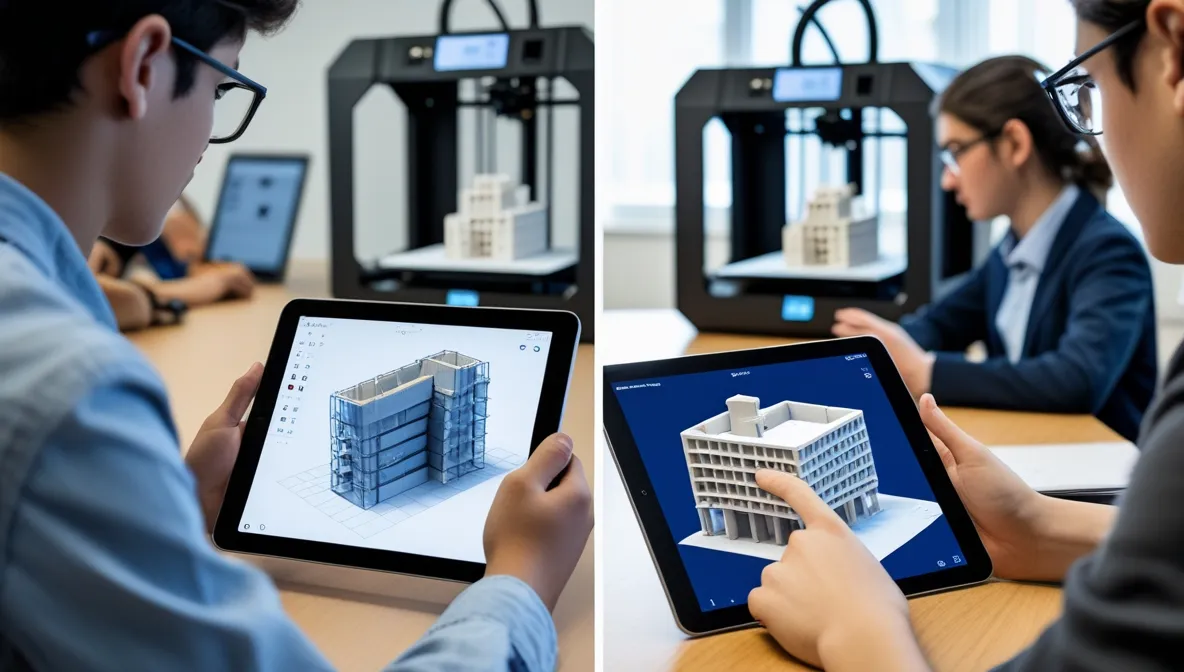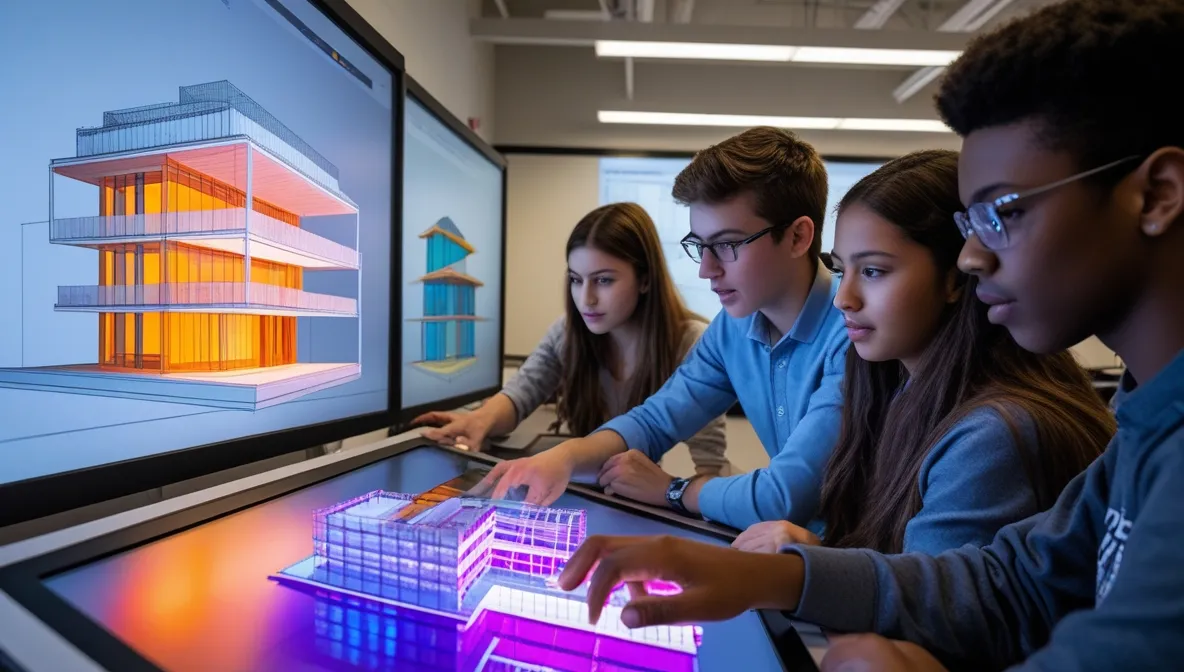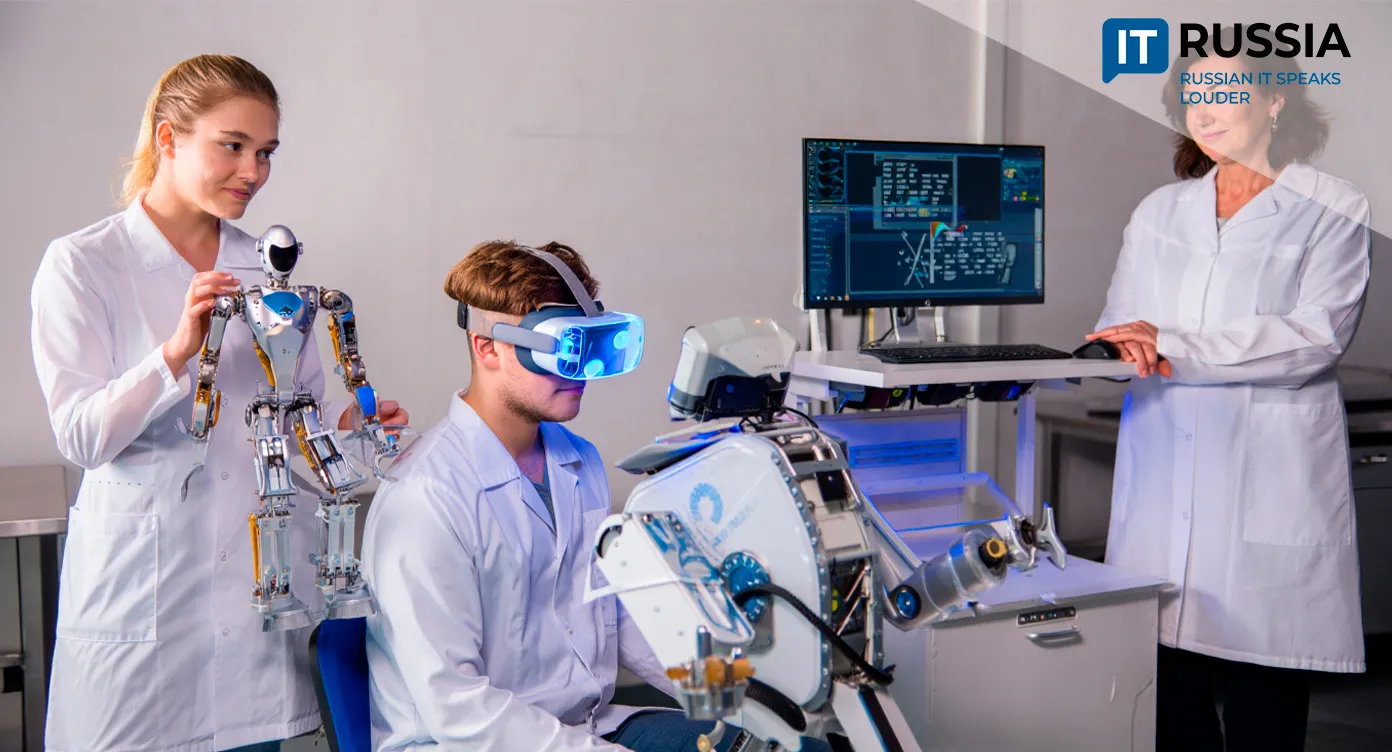Students in St. Petersburg Use AI to Design Urban Development Projects
One of Russia’s leading technical colleges has begun training students to use AI-powered generative design tools, preparing future urban planners and engineers for a fully digital construction environment.

AI Enters the Curriculum
The St. Petersburg College of Industry Technologies, Finance and Law has become one of the first educational institutions in Russia to integrate artificial intelligence into a core academic program. Students in the “Building Information Modeling (BIM)” track now work with rTIM — a domestic AI platform developed by Rocket Group. The system is used for generative design, territory development modeling, and technical-economic analysis of construction projects.
The college is shifting toward full digital immersion: VR labs are replacing traditional classrooms, and domestic BIM software is taking the place of foreign tools. According to program chair Andrey Savvateev, the choice was intentional:

“Mastering the rTIM platform is a strategic decision. Our students consistently show top results and win national BIM competitions. Our goal is to prepare graduates who can use artificial intelligence to solve real engineering problems — not someday, but now.”
From Classroom Simulations to Real Construction Sites
The platform turns abstract concepts into interactive 3D models, allows students to adjust parameters and instantly see the impact, and automatically checks whether building codes are being violated. In other words, it simulates real-world design scenarios but with room for experimentation and mistake-free learning.
If the approach scales, the effects could move far beyond the classroom. Graduates will arrive at construction firms already fluent in AI-driven design workflows. Instead of months of adaptation, they will be able to start immediately — designing a residential complex or restoring a historic district with the same tools they used in class.
Once validated, the platform may move into global markets as well. Countries actively developing smart-city frameworks could be interested in a ready-made system already piloted in an educational environment.

Building Digital Independence
Russia is rapidly shifting toward BIM-centric education and domestic software. The initiative is supported not only by schools but also by industry players. A key example is the joint training program launched by BIM Academy and Nanosoft Development to prepare engineers specifically for Russian digital design tools.
Local BIM platforms are gaining traction in the professional market as well. Renga, one of the best-known domestic solutions, is already in use by Rosatom, DOM.RF, ProGorod, and International Construction Company.
The rTIM platform also has proven case studies: it was used to design the first AI-based master plan for a Russian development site. According to Rocket Group’s Director of Strategy & Communications, Evgeny Antonov, the platform increased master-planning efficiency by roughly 2.5 times.

A Template for the Future?
Integrating rTIM into education creates a repeatable model: domestic technology → academic training → workforce deployment → industry adoption. If it succeeds, the same structure could be applied to utilities, logistics, transport, or public infrastructure — any field where AI can optimize planning and operations.
The challenge now is scaling: embedding new courses into existing curricula, training instructors, and ensuring reliable technical support. The platform itself must evolve along with the industry it is helping transform. But the foundation has been laid — and the first real-world talent pipeline is already forming.










































